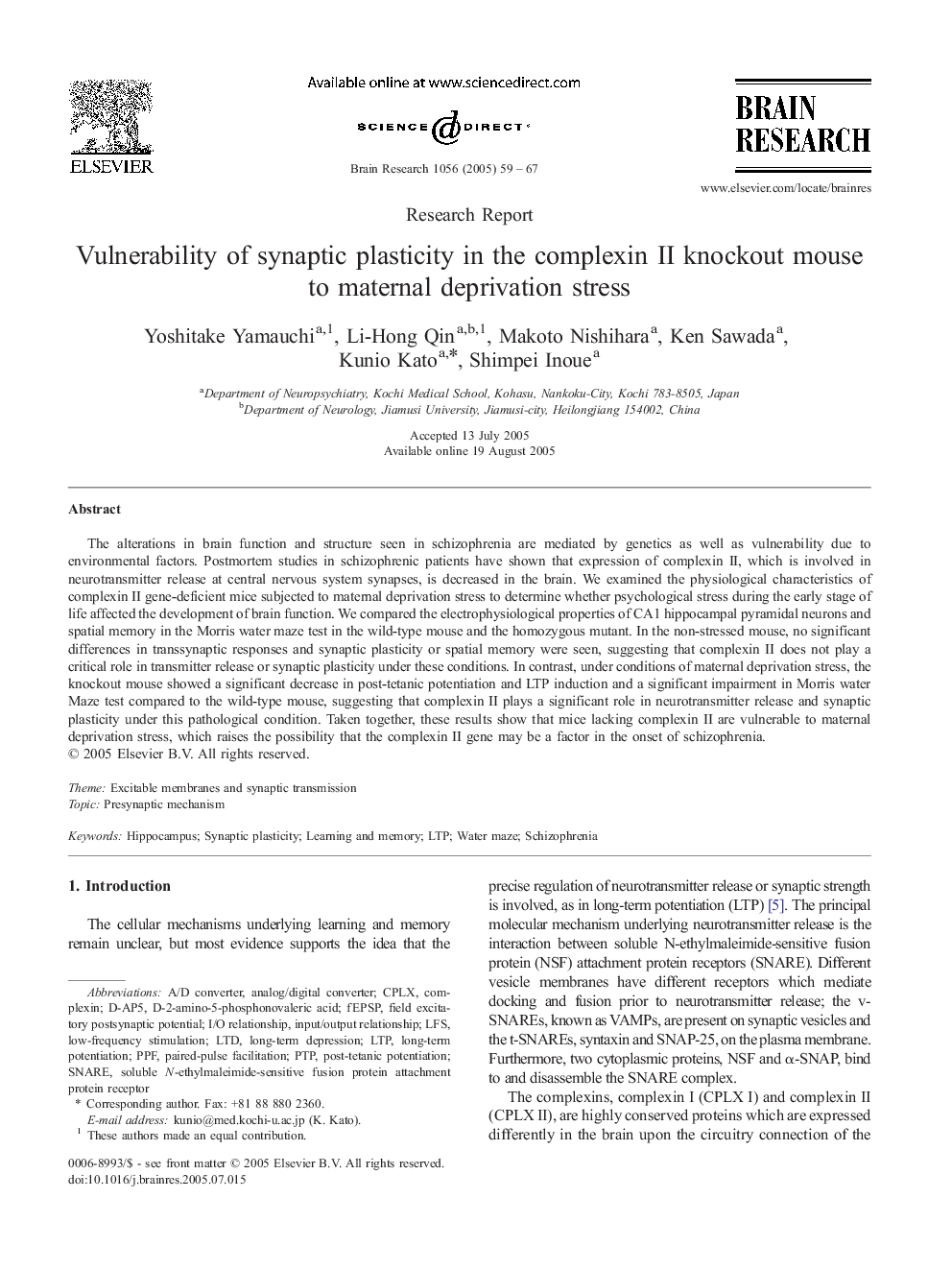| Article ID | Journal | Published Year | Pages | File Type |
|---|---|---|---|---|
| 9416032 | Brain Research | 2005 | 9 Pages |
Abstract
The alterations in brain function and structure seen in schizophrenia are mediated by genetics as well as vulnerability due to environmental factors. Postmortem studies in schizophrenic patients have shown that expression of complexin II, which is involved in neurotransmitter release at central nervous system synapses, is decreased in the brain. We examined the physiological characteristics of complexin II gene-deficient mice subjected to maternal deprivation stress to determine whether psychological stress during the early stage of life affected the development of brain function. We compared the electrophysiological properties of CA1 hippocampal pyramidal neurons and spatial memory in the Morris water maze test in the wild-type mouse and the homozygous mutant. In the non-stressed mouse, no significant differences in transsynaptic responses and synaptic plasticity or spatial memory were seen, suggesting that complexin II does not play a critical role in transmitter release or synaptic plasticity under these conditions. In contrast, under conditions of maternal deprivation stress, the knockout mouse showed a significant decrease in post-tetanic potentiation and LTP induction and a significant impairment in Morris water Maze test compared to the wild-type mouse, suggesting that complexin II plays a significant role in neurotransmitter release and synaptic plasticity under this pathological condition. Taken together, these results show that mice lacking complexin II are vulnerable to maternal deprivation stress, which raises the possibility that the complexin II gene may be a factor in the onset of schizophrenia.
Keywords
Related Topics
Life Sciences
Neuroscience
Neuroscience (General)
Authors
Yoshitake Yamauchi, Li-Hong Qin, Makoto Nishihara, Ken Sawada, Kunio Kato, Shimpei Inoue,
